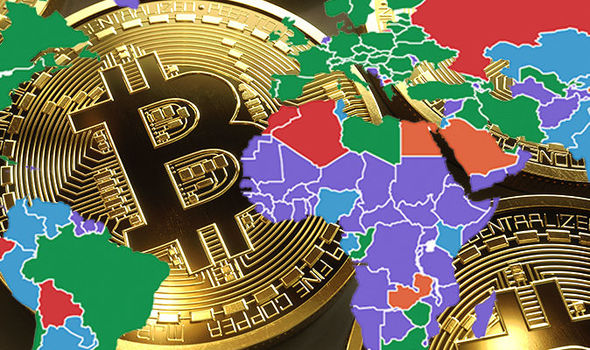When it comes to finances, the regulations allowed different actors to participate more transparently on the market, even though those regulations were never definitive enough to solve the problems related to the security of the users and the integrity of the market. The appearance of the blockchain technology and the use of the cryptocurrencies have been reorganizing the ideas that the individuals, companies and authorities have when it comes to appropriate legislative model to create a stable participation framework in a global economy that is becoming increasingly complex every day.
The cryptocurrency regulators point towards legislative models that rarely coincide with the ideals of the technology that is being developed with a clear goal. These legislative models do not take into account the decentralized nature of the blockchain technology. Christine Lagarde, the Director of the International Monetary Fund (IMF), a few days ago mentioned the necessity to maintain an impartial regulatory agenda that would not block the innovation, but this stance leaves aside the opportunity for the authorities to understand that the questions do not start from the prescriptive side of the law, but from the conceptual, ideological or scientific side of the technology they are trying to regulate.
How can we ask ourselves how we are going to regulate the cryptocurrencies and the blockchain technology if we still do not ask the right questions about its nature? Many people simply do not understand that the cryptocurrencies and its underlying blockchain technology represent a change of paradigm that implies a change in the way the regulations are created.
The European Parliament recently asked for a change in the law against money laundering and financing of terrorism that would also include the regulations for the cryptocurrencies. The declarations of the representatives reflect the general lack of knowledge about the use and the capacity of the blockchain technology.
The difficulty about the regulations starts when the authorities try to classify the cryptocurrency according to notions deriving from other type of contexts.
Some representatives of the US Securities and Exchange Commission (SEC) suggested that some cryptocurrencies should be considered as securities, which is a definition that suits the authorities and the traditional banking because it easier to impose limits and sanctions to the ones that do not follow the already existing regulations.
Even though it sounds difficult defining the reach of these rules when the opinions of the SEC about what is a cryptocurrency are ambivalent, there is no an unique criteria: the cryptocurrencies are seen as securities by representatives of the SEC when they form part of the financing of an initial coin offering (ICO) project, but also as a good – a definition that the Commodity Futures Trading Commission (CFTC) wanted to impose and the Court of New York and other legal authorities in the United States of America accepted.
Even the Internal Revenue Service (IRS) is inclined to define the cryptocurrencies as a method of payment, so that they are considered for the payment of taxes. These different legal definitions of the cryptocurrencies clearly show the confusion created by the United States authorities regarding this subject.
Recently, the Russian parliament presented a draft law that defines the cryptocurrencies as a method of payment. On the other hand, Germany established that the cryptocurrencies would be considered by the legislation as a method of payment, but exempted from the payment of taxes.
The lack of limits allows us to understand that the idea of considering the cryptocurrencies in general according to established norms is not preposterous. After akkm the laws are never written quickly. Nevertheless, considering the cryptocurrencies to be securities, goods or monetary assets does not solve the problem how the laws for this technology should be, because it is not possible to possess, contain or limit something that is not understood.
It is necessary to understand the possibilities, the reach and the limits of the unique and innovative blockchain technology. It is probable that the very same technology contains auto regulatory mechanisms that would allow to contain the personal interests or ideological stances that affect the decisions of the institutions and governments.
The cryptocurrencies have a multifaceted nature that makes them unclassifiable by the conventional economic theory. It seems that only new theories and new definitions could take us to adequate regulations.
In countries such as South Korea the businessman and academic ask for less regulations and more support of the development of the blockchain technology, but these measures are not prevailing for the time being. In contrast, the authorities in Japan seem to have a clear perspective when it comes to this matter: the regulations should be strict with those companies in the ecosystem that do not take seriously the security of their users and the integrity of the market. It is not necessary for a disastrous event to happen such as the theft of funds from Coincheck (a cryptocurrency exchange from Japan) to start taking measures.
The responsibility should start with the ones that are involved in the development of the blockchain technology. It is not necessary that the measures get to be like the ones in Iran or Chile that protect the interests of the banks who unilaterally decide what is best for the economy of the country and are often impulsed by the ignorance of fear of being displaced from a certain position on the global market.
The central banks around the world play an important role and have an opposite stance from the one that allowed the appearance of Bitcoin, but this does not mean that the entire technology behind Bitcoin and other cryptocurrencies is bad.
The lack of goals and risks have many times impulsed a wish to impart in the societies the idea that the best government for ourselves is the most conservative, but a dialogue is necessary because many voices rise regarding these problems and nobody can simply determine who is right and who is not.



